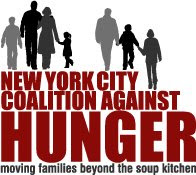In Fresh, Ana Joanes focuses on the people who are re-inventing the food system in the United States. Joanes offers practical alternatives to the current food system in the U.S., an industrial model that has led to food contamination, environmental pollution, depletion of natural resources, and morbid obesity. Unlike some recent books and documentaries by organic food advocates that ignore hunger, “Fresh” bridges the gap between food systems work and anti-poverty and anti-hunger work. Tickets are still available for a screening and panel discussion in NYC this Wednesday at 9:00 p.m. as well as for future shows in Boston, Milwaukee, San Francisco, and Berkeley.
The film features Growing Power, a program based in inner-city Milwaukee that fights poverty and has created a model to promote sustainable, local agriculture. Growing Power's founder, Will Allen, recently won a Macarthur Fellowship (a so-called "genius award”). Growing Power proves that America can indeed fight hunger and bolster the nutrition of low-income neighborhoods at the same time is promotes a more sustainable type of local agriculture.
Many anti-hunger organizations are less supportive of the community food security movement because most of the projects – like Growing Power – are still small-scale. Joel Berg, Executive Director of the NYC Coalition Against Hunger, however, argues that anti-hunger advocates should support expanding initiatives like Growing Power rather than dismissing them. As Berg stated, “The bottom line is that the continuing rhetorical and philosophical fights between community food security and anti-hunger advocates are both silly and counterproductive. If they can’t even agree with each other, they’ll never be able to make the changes necessary society-wide. Both sides need to embrace the reality that we are all in this together.”
Tuesday, May 26, 2009
Subscribe to:
Posts (Atom)
